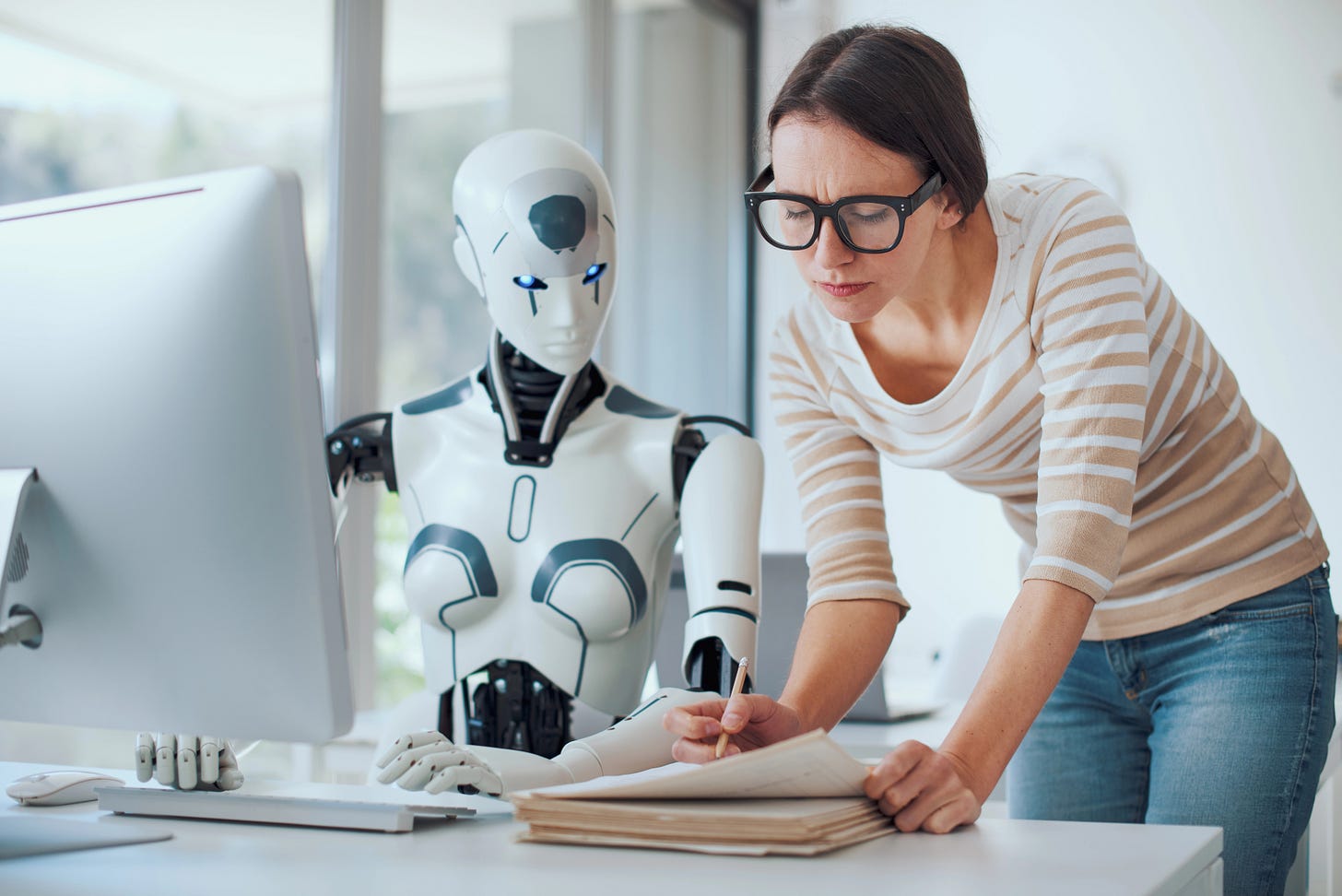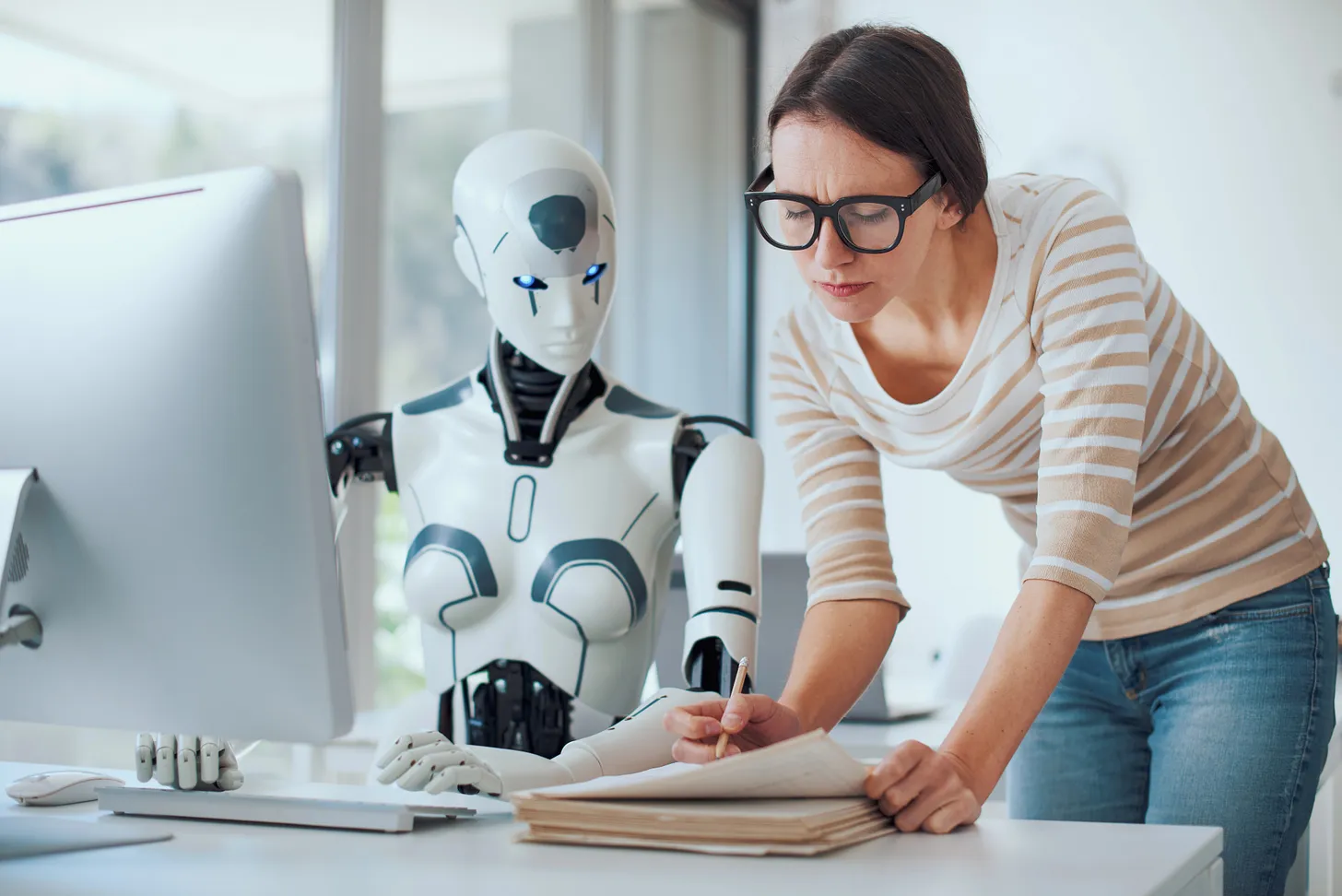When AI Clocks In and We Clock Out
One of my nonprofit clients, who runs adolescent treatment centers, recently shared a recruiting campaign she’s working on. Her billboard idea is simple—and striking:
“AI-Proof Your Career. Work with us and help teens achieve better outcomes. Artificial Intelligence will not replace you.”
It’s an emotional appeal grounded in an absolute truth. In a world increasingly run by algorithms, roles grounded in human connection—such as therapy, education, and caregiving—still carry a weight that no machine can replicate.
And yet, the gap is narrowing.
Just days after that conversation, I read a Wall Street Journal piece about a senior living center piloting a voice-activated AI companion named Meela. Residents spoke to Meela for an average of 10 minutes a day. A small study showed reduced loneliness, anxiety, and depression. It’s easy to see the value, but just as easy to imagine how these tools might eventually replace specific human interactions, especially in cost-driven environments.
At a recent dermatology visit, I asked my doctor whether AI would be helping identify cancerous lesions. She nodded: “It’s already happening.” But then she added, “I’m not too worried. I do Mohs surgery. Robots aren’t doing that yet.” She paused, then smiled. “And besides, I’m the one who sits with the patient and explains what comes next.”
AI may assist, but empathy still belongs to us.
Across industries—law, finance, transportation, education, even software development—AI is no longer just a support tool. It’s becoming the interface. Driverless trucks are already on the roads. Coding assistants now generate complete software programs in seconds. Routine legal contracts? Drafted without lawyers.
Just yesterday, Hyatt announced it is reducing its support staff by 30 percent, citing “the evolving nature of guest inquiries and shifting business needs.” Translation: AI is replacing call center agents, concierge teams, and other back-office functions. The economic incentive is clear: automate to protect the bottom line.
A colleague recently said to me, “We’re beyond asking whether AI will affect our careers. The real question is—how fast, how deep, and can we stay agile enough to work alongside something that learns faster than we do?”
We’re caught between two stories. One promises astonishing breakthroughs and productivity gains in weeks, rather than years. The other hints at quiet panic, as people begin to question their value in a world of intelligent machines.
But perhaps there’s a third story to explore—one shaped by an old idea, renewed for this moment.
It brings to mind a quote from John Adams:
“I must study politics and war that my sons may have liberty to study mathematics and philosophy… to give their children a right to study painting, poetry, music…”
Adams envisioned a future where each generation could stand on the shoulders of their parents, find new ways to express themselves, and move their lives closer to a sense of expression and fulfillment, not just surviving but thriving in ways we’ve not imagined before.
What if AI is the next generation’s turning point? What if, as it takes on the repetitive, linear, and predictable, we are being offered a rare chance to reshape our work—and our worth—around creativity, emotional Intelligence, more calculated risks, and a kinder world.

Over the next few weeks, I’ll explore how we might not only survive but thrive in an AI-shaped world. We’ll look at some new ideas in and out of the world of work.
Because “what’s next” isn’t just about the tools we use, but the lives we want to build.
This is where I’d love to hear from you.
What are you seeing in your work and personal life? How do you think AI is shaping it—for better, for worse, or somewhere in between?
